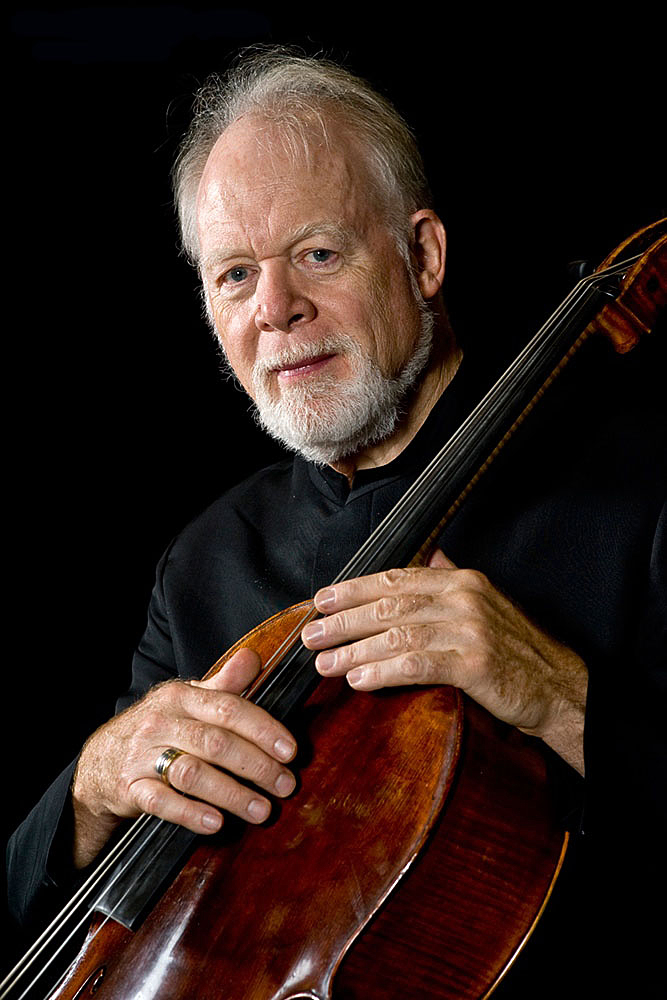At a school like UCLA, it’s easy to find oneself jaded by having some of the most prestigious and influential researchers as professors. But when two-time Grammy-winning cellist Lynn Harrell ““ a man whose list of achievements includes playing for Pope John Paul II”“ comes to teach a class, students are likely to be starry-eyed.
This afternoon, Harrell will teach a master class in Popper Auditorium to students of the cello studio. The one-time class will allow students to perform compositions that he will critique and discuss with the audience.
Though the experience can place pressure on the performing students, the class is meant to improve their skills and allow interaction with a musician at the pinnacle of success as a cello soloist.
“The fact that my students will have personal contact with one of the biggest names in what they are studying, it’s a great privilege and something they will remember their whole lives,” said Antonio Lysy, a cello professor who is also the head of strings.
He recently received a Latin Grammy Award for the song “Pampas” off his album “Antonio Lysy at The Broad: Sounds of Argentina.”
Born to musicians, Harrell began playing the cello at 8 years old. After high school he attended the Juilliard School and the Curtis Institute of Music before making his debut in 1961 with the New York Philharmonic Orchestra.
No stranger to travel, Harrell has played in numerous orchestras in the United States, including Boston, Chicago, New York, Philadelphia, San Francisco and the National Symphony. Harrell has also played in orchestras across the globe, including the cities of Berlin and London, and the nations of Israel, Korea, Japan and Taiwan.
Harrell’s extensive career includes a discography upward of 30 recordings, a performance at the Vatican with the Royal Philharmonic in remembrance of Holocaust victims and a three-week Lynn Harrell Cello Festival with the Hong Kong Philharmonic.
“He has been one of the rare instrumentalists that has made a very big career as a soloist on the cello,” Lysy said. “It’s the hardest music (in the composition) where you are most exposed. You’re sitting in front of the orchestra and playing alone. … What he gets to do is quite unique.”
Taking an instructor’s role for today’s master class is not new for Harrell, because education has been an important aspect of his career for years. He has been the International Chair for Cello Studies and later the head of the Royal Academy in London, as well as an instructor of cello at Rice University. He was also artistic director of the orchestra, chamber music and conductor training program at the Los Angeles Philharmonic Institute from 1988 to 1992.
“Lynn Harrell (is) incredibly famous,” said Alexandra Roedder, a graduate student in cello performance who is also earning a doctorate in musicology. “It’s really exciting to have that kind of feedback from someone so well-established as a great musician.”
Roedder will join other cello students in playing a composition for Harrell. Afterward, they will learn from the tips and advice he discusses with the general audience.
Roedder has been preparing her piece since September and more intensely in the past few months. Even with all her preparation, she said it can be a nerve-racking and sometimes belittling experience.
“It can be intense, because you’re critiqued in front of the audience you just played for,” Roedder said.
One master class Roedder did with another cellist led to humiliation when she was asked to do a rhetorical exercise after her piece, instead of replaying it.
“You can be humiliated in master classes, but you can also get incredible feedback and critique,” Roedder said.
With such an esteemed and famed musician critiquing students, Jasmine Lau, a second-year cello performance student, said aside from the educational benefits, a sense of inspiration is also likely to hit by the time they walk out of Schoenberg Hall.
“I think watching any master class is really fascinating because they teach you a lot,” Lau said. “No one professor or performance artist is the same, so the more master classes you see, the wider spectrum and perspectives you experience. You don’t realize it until it comes right from them.”
